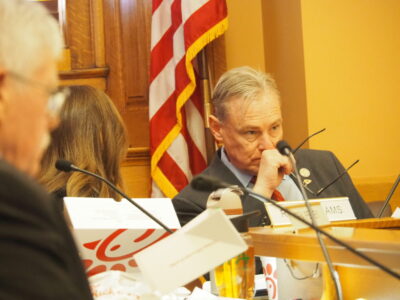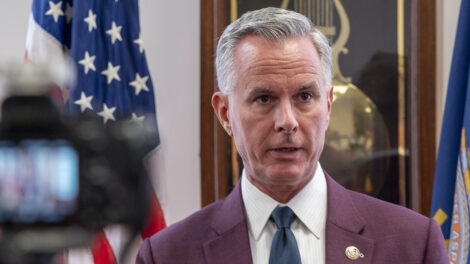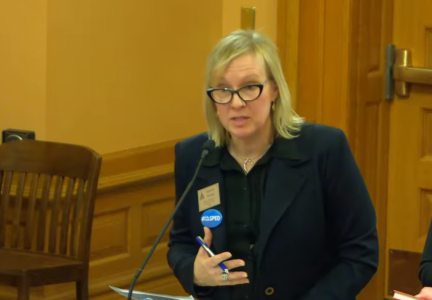Sebelius vetoes concealed carry bill
Topeka ? Gov. Kathleen Sebelius fulfilled a promise Friday to veto a bill allowing Kansans to carry concealed handguns, saying the measure would have placed law enforcement officers in an “untenable position.”
Supporters of the law did not expect to try to override the veto.
“That is something I don’t think we can pull together,” said Rep. L. Candy Ruff, D-Leavenworth, a sponsor of the bill. “We have an election in November and hopefully will elect candidates who support this issue.”
Sen. Phil Journey, another prominent concealed carry supporter, said backers of the bill knew Sebelius did not view it favorably but wanted to get legislators on record before this year’s elections.
“I think her veto turns this next election into a referendum on this issue,” said Journey, R-Haysville.
The bill would have required the attorney general’s office to issue a concealed-carry permit to any Kansan 21 or older who is a U.S. citizen, pays a $150 application fee, has no mental illness or drug or alcohol addiction and completes eight hours of training.
The legislation prohibits concealed handguns in several locations but would allow them in the Statehouse, school parking lots and restaurants that serve alcohol.
In her veto message, Sebelius said if the bill had become law, “Police officers, highway patrolmen, sheriffs, and deputies in Kansas would be forced to assume that any person they stop could have a firearm.”
“This would make their already dangerous job even more difficult,” she said.
Thirty-seven states have laws that require officials to issue concealed carry permits to qualified applicants and another nine have laws that give officials some discretion over whether someone gets a permit. Only Kansas, Illinois, Nebraska and Wisconsin lack a law allowing some form of concealed carry.
During her 2002 gubernatorial campaign, Sebelius said she would support legislation to allow retired law enforcement officers to carry concealed weapons — a position she reiterated throughout this year’s legislative session.
“Anything further, however, would undermine the safety and freedom of all Kansans,” she wrote in her veto message.
Kansas legislators approved a concealed carry bill in 1997, but then-Gov. Bill Graves, a Republican, vetoed it. In his veto message, Graves said such a law would result in more injuries and deaths from accidental shootings.
Ruff said Sebelius “is following the same misguided information” as Graves. She and other supporters of the bill said its passage would permit Kansans, particularly women, to protect themselves.
In her veto message, Sebelius said she supports Kansans’ right to own firearms but does not believe a broad concealed carry law would make Kansans safer.
“I do not believe allowing people to carry concealed handguns into sporting events, shopping malls, grocery stores, or the workplace would be good public policy,” she wrote in her veto message. “And, to me, the likelihood of exposing children to loaded handguns in their parents’ purses, pockets and automobiles is simply unacceptable.”
Ruff said the experiences of other states show that such concerns are unfounded.
“Her arguments were thinly presented,” Ruff said. “The mothers in those others states who are permit holders have not put their children in danger. You simply don’t have those dangers.”
Legislators could override Sebelius’ veto with two-thirds majorities in both chambers, but the bill passed in the House on a 78-45 vote, leaving supporters six votes short of the number needed to override.
The House would vote on a veto override first.
Asked whether supporters would pursue an override attempt if they thought they had the votes, Ruff said, “Sure we would, but we don’t have them right now.”





